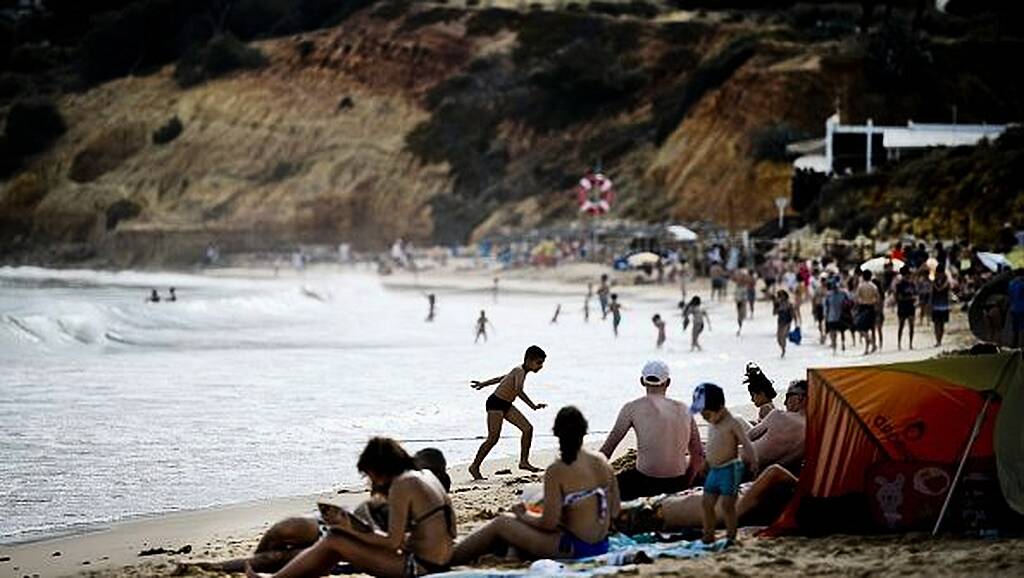

If you’re paying over the odds for energy, the typical advice is to switch provider – but that’s not an option for some.
Around 500,000 people in the UK are connected to a heat network, a system that supplies multiple properties from a single central source rather than each individual home.
London-based Alfonso, 39, is one of them. And like more than half of his fellow heat network customers, he feels his bills are too high.
In this week’s Metro’s Money Problem, personal finance journalist and consumer champion Sarah Davidson gives him the no-nonsense advice he needs.
Got a Money Problem of your own?
Have you been ripped off by a romance scammer? Fighting with family or friends over who should pay for what? Struggling to get by despite a decent income? Or simply want to vent about how you’ve been treated by a major company?
If you’ve got a money problem you’d like Sarah to look into, fill in this form or email [email protected], providing as much detail about your situation as possible.
No issue is too big or small, and all submissions will be treated with the strictest confidence.
The problem…
I moved into a new build rental flat last year and am really struggling with cost of heating and hot water. When we viewed the place, the letting agent mentioned it was part of an energy-efficient communal heat network, which sounded like a good thing.
However, the reality has been very different. Not only are my bills much higher than in my previous place of around the same size, no-one seems to be able to give me any answers as to why.
From what I can tell, the amount I pay is down to how much the operator bulk-buys the gas for, but my bills don’t explain how this is decided, why my unit rate is more than Ofgem’s price cap, or whether I’m paying for heating in hallways and other communal areas. It’s so confusing.
Normally I’d switch to a different provider but this isn’t an option for heat network customers, so I’m effectively locked in. Aside from reducing my consumption even further (I’m already wearing jumpers and timing my showers) or moving somewhere new, it feels like I’m out of options. Is there anything else I can do?
The advice…
An interesting and important question Alfonso, thank you for raising it.
The problem you’re facing is a serious one and it’s going to start mattering to more of us over the next few years, as in order to slash meet net zero, the government wants one in five British homes to ditch gas boilers and join a heat network by 2050. That’s 6 million households across the country.
For those who haven’t yet come across them, a heat network is a single centralised source of heating, cooling systems and hot water that supplies multiple households – from a block of flats to an entire town. The theory is that the heat network can buy energy in bulk, thereby keeping costs down for each household.
In practice, as you are clearly only too aware, that’s far from the reality.
There are several reasons for this. First, heat networks have been unregulated for years, making (some of) them effectively a wild west. Currently, there are no rules dictating how heat networks set their prices, why or when they can increase prices, or even what they charge for, so you may well be paying for heating communal areas without being aware.
Second, as you correctly point out, they don’t have to stick to the Ofgem energy price cap, and can charge whatever they like without explanation. This also means that when wholesale energy prices are very high – as they have been in recent years – heat networks will likely pass that extra cost straight onto homeowners and tenants.
And third, not all heat networks are particularly efficient – they can lose an awful lot of heat in the process of transferring it from the central source to your home, meaning you are probably being lumped with the bill for that wastage on top of what you’re actually using.

Now, your question is what you can do to bring the costs of your heating down. For the moment, the answer is possibly not a huge amount more than you’re doing already. However, if you haven’t yet, try these options:
Contact your landlord explaining the situation. Ask if they will agree to subsidise your heating bills for a period of time – they might even be prepared to take on some of the cost permanently if it means you stay a tenant. Tell your heat network you’re struggling – they might be able to lower your bills temporarily or have some other form of support available. Don’t hold your breath but do ask the question. Check whether your electricity is supplied centrally. Heat networks only provide heating, hot water and air cooling systems, and some buildings may allow individuals to switch electricity provider. Electricity is more expensive than gas, so switching to a cheaper tariff is likely to see you save. Additionally, being with a mainstream electricity supplier will also mean you’re protected by the Energy Price Cap for this part of your bill. Take a look at the Energy Saving Trust or use any of the comparison sites to find the best deals on offer.The usual advice also applies: turn off appliances when not in use instead of leaving on standby; only use the washing machine and dishwasher when you’ve got a full load and run a lower temperature wash; shower rather than bath; use an air fryer or microwave to cook smaller portions instead of the oven.
Consider asking your landlord to have a smart meter installed too, as that will give you an accurate real time view of the energy you’re using and what it’s costing you. This will help you understand where you can make tweaks to keep costs down.
The other thing you can now do is complain – and with rather more teeth than you would have had just a couple of months ago. The law changed at the start of April, meaning you now have the option to challenge your heat network bills with the Energy Ombudsman.
Complain about your heat network provider
If you feel you’ve been unfairly charged and want to complain, you’ll need to follow these steps.
If you haven’t had a response from your heat network after eight weeks or they send you a ‘deadlock letter’, you can take your complaint to the Energy Ombudsman which will investigate independently and may be able to force your network to give you some money back depending on what they find. Get some free help and advice from Citizens Advice if you live in England or Wales and from Consumer Scotland if you’re north of the border. Write to your landlord (or managing agent) lodging a formal complaint. This should include evidence, perhaps using data from your smart meter to compare your usage and unit costs to some of the better deals on offer from other suppliers. They may be able to take this up with the heat network for you. If not, lodge your complaint with the heat network directly – they should have a formal complaints procedure on their website and on your bills. You could also contact your neighbours to see if they would also be prepared to join a complaint. Some buildings or communities have official residents’ associations or Facebook groups. There can be power in numbers.More rules will start to come in from January next year, when the industry regulator Ofgem takes on responsibility for heat networks. This should mean customers get better service, more reliable energy supplies, fair pricing and bills that are easier to understand.
Right now, that may be cold comfort for you, but it does at least hint at a fairer future for heat network customers.
In the meantime, talk to your landlord. If it’s a choice between them covering £20 a month of your heating bills or losing you as a tenant, I reckon they’ll go with the former.
Sarah Davidson is an award-winning financial editor and head of research at WPB
Got a money worry or dilemma? Email [email protected]
Do you have a story to share?
Get in touch by emailing [email protected].













 Bengali (Bangladesh) ·
Bengali (Bangladesh) ·  English (United States) ·
English (United States) ·